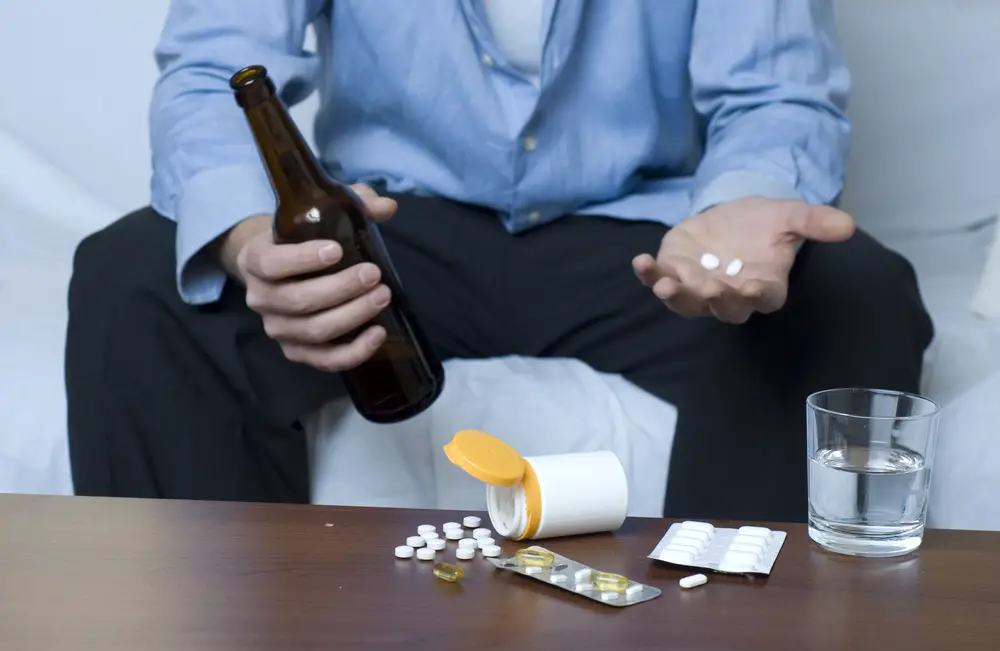As a BetterHelp affiliate, we receive compensation from BetterHelp if you purchase products or services through the links provided
Living with addiction is an incredibly challenging journey that not only affects your mental and emotional well-being but takes a toll on your physical health as well. The stress that accompanies addiction can manifest in various ways, wreaking havoc on your body.
Here are some practical insights on embarking on a healing journey for your mind and body.

Prioritizing Mental Health in Recovery
Breaking the cycle of addiction-induced stress involves prioritizing mental health in your recovery journey. Seeking professional help, such as counseling or therapy, provides a structured environment to address the underlying issues contributing to both addiction and stress. When seeking professional help, read more about the specialization and approach of potential therapists or counselors to ensure they align with your specific needs. Adopting mindfulness practices, such as meditation and yoga, can be powerful tools in managing stress and promoting mental well-being.
Understanding the Link Between Addiction and Stress
Addiction and stress often go hand in hand, forming a vicious cycle that perpetuates each other. The neurochemical changes induced by addiction heighten stress responses, while stress, in turn, becomes a trigger for addictive behaviors. This intricate relationship creates a challenging scenario where breaking free from one often requires addressing the other. Acknowledging this connection is the first step towards holistic recovery.
- Neurochemical Imbalance: Addiction disrupts the delicate balance of neurotransmitters in the brain, leading to an overstimulation of the reward system. This heightened activity contributes to an increase in stress hormones, perpetuating the cycle of addiction and stress.
- Coping Mechanisms: Individuals often turn to substances as a means of coping with stressors in their lives. The temporary relief provided by the addictive substance can create a reliance that, over time, exacerbates stress instead of effectively addressing its root causes.
- Impact on Decision-Making: Chronic stress alters decision-making processes, making it more challenging to resist the temptations of addictive behaviors. This compromised ability to make sound choices further entrenches the cycle of addiction and stress.
The Physiological Toll of Addiction-Induced Stress
The body’s stress response, when constantly activated by addiction, can lead to severe physiological consequences. Chronic stress is associated with increased inflammation, elevated blood pressure, and compromised immune function. Understanding how addiction places your body under constant stress is crucial in appreciating the urgency of addressing both the addiction and its physiological repercussions.
Nourishing Your Body for Recovery
Nutrition plays a pivotal role in healing your body from the stress induced by addiction. Substance abuse often leads to nutritional deficiencies, further exacerbating the physical toll. Embracing a balanced and nutrient-rich diet helps replenish essential vitamins and minerals, supporting your body’s recovery process. Adequate hydration is equally vital, aiding in detoxification and promoting overall well-being.
Balanced Diet and Nutrient-Rich Foods
Focus on incorporating a variety of fruits, vegetables, whole grains, and lean proteins into your diet. Avoid processed foods, sugary snacks, and excessive caffeine, as they can contribute to energy crashes and exacerbate stress.
Supplementation for Nutritional Support
Consult with a healthcare professional to identify potential nutritional deficiencies resulting from substance abuse. Consider supplements such as vitamins B and D, omega-3 fatty acids, and antioxidants to support your body’s recovery and enhance overall well-being.
Hydration as a Fundamental Element
Adequate water intake is essential for flushing out toxins from your body, aiding in detoxification. Carry a reusable water bottle to stay hydrated throughout the day, promoting optimal physiological function.
Incorporating Physical Activity into Your Routine
Exercise is a potent ally in combating stress and promoting recovery. Engaging in regular physical activity not only helps manage stress hormones but also contributes to the release of endorphins – your body’s natural mood lifters. Find an exercise routine that suits your preferences, whether brisk walking, cycling, or practicing a sport. The benefits extend beyond physical health, positively impacting your mental resilience.
Building a Supportive Network
Isolation often accompanies addiction, intensifying the stress on both your mind and body. Actively building a supportive network can be a game-changer in your recovery. Surround yourself with individuals who understand and encourage your journey. Whether it’s friends, family, or support groups, having a reliable support system can provide emotional strength and motivation during challenging times.

Healing from addiction-induced stress is a multifaceted journey that requires a comprehensive approach. By acknowledging the intricate link between addiction and stress, prioritizing mental health, nourishing your body, embracing physical activity, and building a supportive network, you can pave the way toward holistic recovery. Remember, addressing both the mental and physical aspects of your well-being is critical to breaking free from the chains of addiction and restoring harmony to your life.
For a comprehensive guide on incorporating the five steps to recovery into your journey, explore the valuable insights provided by Living at Reflections. Gain a deeper understanding of the transformative process and empower yourself to sustain well-being.
This site contains affiliate links to products. We will receive a commission for purchases made through these links.



